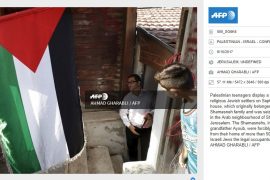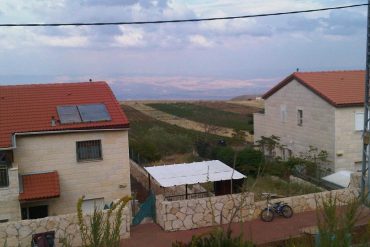1) Following the recent exposure of Hamas’ use of the media to recruit terror operatives, the ITIC has published a report on that case and others.
“The Israel Security Agency recently exposed a Hamas network in Judea and Samaria whose operatives were recruited and handled by Hamas operatives in the Gaza Strip. The recruits were given instructions to carry out terrorist attacks in Judea, Samaria and Israel. Interrogation revealed the methods used by the handlers in the Gaza Strip. The recruiters represented themselves as journalists, and covert messages were passed to the recruits though al-Aqsa TV, Hamas’ most important media outlet. […]
The double identities of Palestinian media personnel who are also involved in terrorism is well known from past events. There is also a well-known phenomenon of terrorist operatives making use of indications of media affiliation.”
2) At the Jerusalem Post, CAMERA’s Sean Durns discusses “The Rise of Fatah, 50 Years On”.
“February 4, 2019, marked an important, albeit largely unheralded date – the 50th anniversary of Fatah’s ascension in Palestinian politics. On February 4, 1969, the movement’s founder, Egyptian-born Yasser Arafat, was appointed chairman of the Palestine Liberation Organization (PLO). For most of the half century since, Fatah has dominated Palestinian affairs, with fateful consequences for the Middle East and beyond. […]
Arafat and about 15 others founded Fatah on October 10, 1959, in a meeting at a private home in Kuwait. At the time, Arafat was an engineer working for Kuwait’s Department of Public Works. Most of his compatriots were young Palestinian students or workers employed in Kuwait, which was then experiencing an oil boom and rapid economic growth. They called themselves Harakat al-Tahrir al-Filastiniyya (the Palestinian Liberation Movement), whose acronym reversed spells Fatah, which means “conquest”.”
3) At the JCPA Nadav Shragai and Lenny Ben David discuss “Who Is Breaking the Status Quo on the Temple Mount?”.
“Israel closed the compound in 2005 because a Hamas-related organization was operating at the site. The closure of the compound in 2005 – first with a military order and then with a court order – was periodically extended until several months ago. However, current Muslim activities in the compound are not only an attempt to retake possession of the compound, which they held in the past (just as they held the entire Temple Mount), but they are also attempting to take a very significant step further – to establish at the compound a fifth mosque on the Temple Mount. This effort demonstrates a process that has been going on for over 30 years to increase the Muslim prayer areas on the Temple Mount and to erode the fragile status quo established at the holy sites.”
4) The Fathom Journal carries an interview with Israeli journalist Matti Friedman about his new book.
“The book follows four of Israel’s first spies through the 1948 War of Independence. The main characters are young men on the margins of the Zionist project who are recruited by a small, ad-hoc intelligence outfit within the Palmach called the Arab Section, which encourages Arabic-speaking Jews to cross enemy lines and gather intelligence in the Arab world. […]
The roots of the Arab Section lie with the British. The original idea was not to fight the Arab world, but the Germans. In the early years of the Second World War, when it looked like the German army was about to enter Mandatory Palestine through North Africa, the British and Jewish community in Palestine have a shared sense of panic. They realise they face real danger and plans are drawn up for a last defence of Haifa.”




